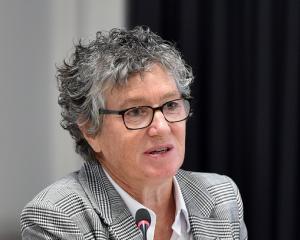
Native bush has had a chance to heal and there are no herds infected with bovine tuberculosis (Tb) around Dunedin, a new study has shown.
It is thanks to the removal of 30,000 possums over 12,500ha, stretching from North East Valley to Aramoana, by a local environmental initiative.
Halo Project Predator Free Dunedin operations manager Jonah Kitto-Verhoef said they were the results he expected to see from its four year study, measuring the effectiveness of possum control on native vegetation in the area.
The study began at the same time as the intensive possum control programme led by Ospri, in collaboration with the Halo Project.
The project controls possum numbers, and is aimed at supporting local biodiversity and eradicating bovine Tb, of which possums are the main transmitters to wildlife and farm animals.
"By removing predators, we are giving native biodiversity the opportunity to thrive,” Mr Kitto-Verhoef said.
The study commissioned by the Halo Project monitored 54 native mahoe and tree fuchsia around Pigeon Hill and Mihiwaka from 2016 to this year. It found canopy density had increased and effects of possums on native trees had declined.
"Possums target specific trees with frequent visits and eat the leaves, buds and flowers, causing significant damage."
Mr Kitto-Verhoef said keeping possum numbers low was important in helping the Tb disease "die out".
"Even with these great results there are still plenty of possums out there, so the more people trapping, the better our possum control will be."
But there was no doubt native vegetation was healing well with a break from hungry possums, he said.












